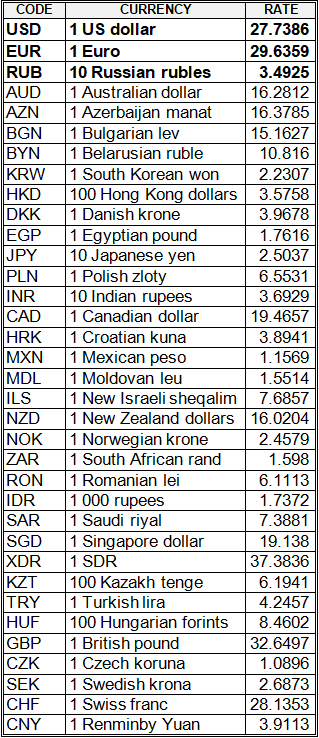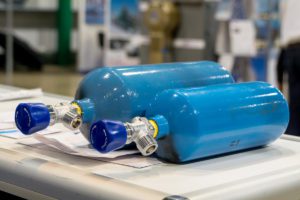
Kyivstar mobile communications operator has canceled the monthly fee for most popular services allowing doing business remotely, the press service of the operator reported on Monday. “Many companies now find themselves in difficult conditions when they have to completely rebuild business processes in accordance with the requirements of quarantine. At the same time, some businesses already had experience using services to work online, but most others do not even know where to start. Kyivstar Business not only provides individual expert advice to such companies, but also offers to start working with new tools in testing mode without paying a monthly fee,” the press service said, citing Corporate Business Development Director at Kyivstar Kostiantyn Vechir.
According to the report, in particular, the list of the services includes:
– Microsoft Office 365 and StarTeams (terms of the promotion: connection up to 25 Office 365 licenses for using the services, no monthly fee is charged for 30 days from the date of connection during the period of the action);
– Mobile Virtual PBX (terms of the promotion: use of the service without a monthly fee within 60 days from the connection date during the validity period of the promotion);
– Star.Docs electronic document management system (terms of the promotion: signing an unlimited number of electronic documents without charging a monthly fee or other payments during the promotional offer);
– IoT control center (terms of the promotion: connecting and using the platform without a monthly fee for two full months from the date of activation).
According to the company, the offer is valid from March 23 to April 3, 2020 for all new Kyivstar corporate clients, as well as those existing customers who have not previously ordered services from the promotional list.
Kyivstar is the largest Ukrainian telecommunications operator.
National bank of Ukraine’s official rates as of 23/03/20

Source: National Bank of Ukraine

PJSC Borschahivsky Chemical Pharmaceutical Plant (Kyiv) increased its net profit 123.77% in 2019 compared to UAH 194.137 million in 2018.
According to the agenda of the shareholders’ annual meeting scheduled for April 22 in the information disclosure system of the National Securities and Stock Market Commission, the total receivables of the company amounted to UAH 327.414 million.
The company’s assets increased by 7.78%, to UAH 1.925 billion, net worth by 11.7%, to UAH 1.62 billion for the year.
According to the results of 2018, the plant reduced its net profit by 16.96%, compared to UAH 86.758 million in 2017.
PJSC Borschahivsky Chemical Pharmaceutical Plant is among the top 20 largest pharmaceutical manufacturers in Ukraine. It is a member of the Association of Manufacturers of Medications of Ukraine (AMMU).

The European Investment Bank (EIB) is ready to redirect funds issued for programs in Ukraine for fight against coronavirus, Foreign Minister of Ukraine Dmytro Kuleba has said.
“I spoke with the European Investment Bank, which is ready to redirect certain funds allocated for programs in Ukraine to measures to overcome the coronavirus,” he said in an interview with Interfax-Ukraine.
In addition, Kuleba said that at a meeting with the head of the mission of the International Committee of the Red Cross (ICRC) in Ukraine, Florence Gillette, he discussed the question of what kind of help the ICRC can provide to Ukraine in preventing the spread of coronavirus.
“We are ready to receive something as humanitarian aid, to purchase something, but this search is being conducted at all levels, in international organizations, in business contacts,” the minister said.
According to him, the entire system of the Foreign Ministry of Ukraine is now working on two fundamental tasks: the return of Ukrainians from other countries and the search for humanitarian assistance and procurement.

State-owned enterprise (SOE) Zorya-Mashproekt (Mykolaiv) under a request of medical institutions of Mykolaiv city in relation to a threat of spreading the coronavirus disease COVID-19 has resumed production of medical oxygen halted early 2020 over the absence of demand, the press service of the Ukroboronprom state concern, which incorporates the enterprise, said on Friday.
The state concern said that the enterprise has all the necessary equipment for the production of oxygen and for many years provides its own needs with technical oxygen for welding.
Zorya-Mashproekt promptly responded to the request from doctors and invested its own funds in the supply of medical oxygen, since the certification production conditions require the introduction of certain measures to control the quality of medical oxygen. Zorya-Mashproekt can produce more than 50,000 cubic meters of medical oxygen per year, which is the most important for the country in these days. Now, we are looking for equipment for uninterrupted operation,” the press service said, citing Director of Zorya-Mashproekt Denys Hordienko.
The company said that in order to use it in the future and ensure uninterrupted operation of the medical oxygen line throughout the entire period of the pandemic, it is necessary to purchase backup equipment.
Currently, tender documents are being prepared for the purchase of a hygrometer, which, according to Ukroboronprom, will cost the company about UAH 200,000. Certification activities for the line are tentatively estimated at a similar amount.